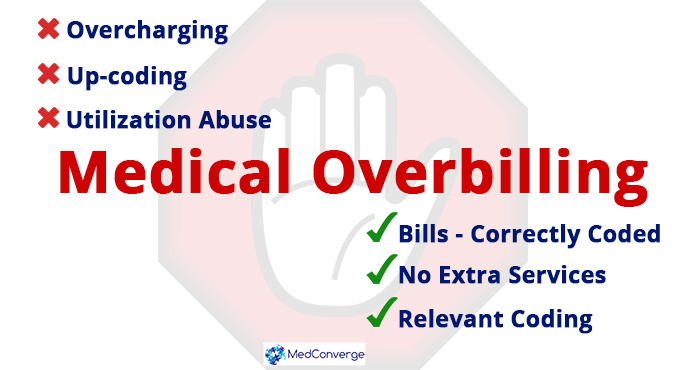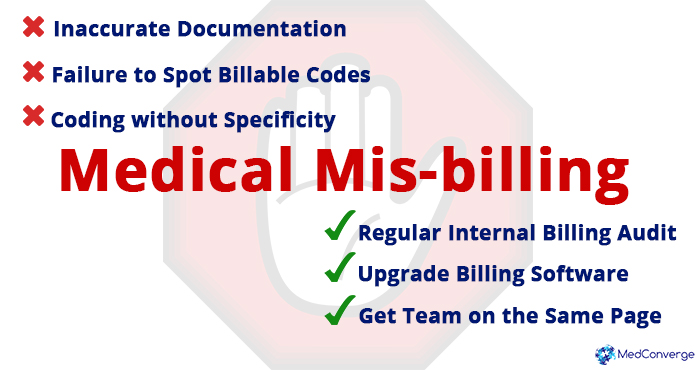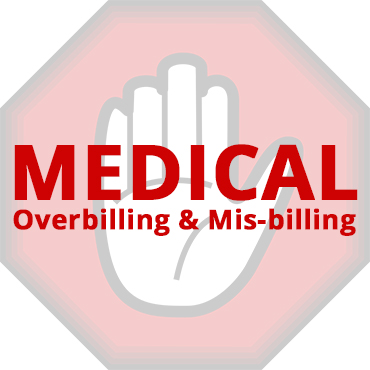Medical billing is one area that most healthcare facilities find nerve wracking, time consuming, complicated and tricky. With all those rules to follow, codes that need to be put in correctly and supporting documents to be attached, medical billing is an area that is highly prone to mistakes. Typically these mistakes are due to carelessness, ignorance or on purpose. An occasional billing error is something that even the best of facilities make; however, if your claims denial rate is higher than 4%, it is time to take stock of your medical billing procedures. Then, there are cases where the error is intentional – this amounts to cheating and can have grave consequences for your facility and yourself.
It does not matter whether your medical billing error is a mistake or intentional, both have consequences that can take out a big chunk of your bottom line, or in some cases, force you to shut down your practice. The two most common medical billing errors are overbilling, which in the majority of cases is intentional and mis-billing, which is generally accidental. What can you do to ensure that these two medical billing errors do not cause your practice any grief?
Overbilling

While it is true that overbilling could be a genuine mistake, the majority of overbilling cases are intentional, done to extract higher payments. Overbilling is done in the following ways:
- Overcharging – this is done by adding additional units of the services performed or adding codes for services that have not been performed at all.
- Up-coding – entering incorrect codes that lead to higher charges.
- Utilization abuse – done by providing services that are unnecessary or by scheduling extra visits where none are required.
Let us assume that the overbilling was a genuine error and not an intentional act; so, how do you make sure that such errors do not take place in future?
- Put checks and balances in place to ensure that your bills are correctly coded and only for those services that have been provided.
- Ensure that there are no extra or unnecessary services provided by any member of the staff.
- Make sure that the relevant coding is taken to the highest level of specificity.
For those overbilling issues where the error is intentional – well, it is time to put an end to this practice. The consequences of overbilling can be a lot worse than just a denied claim.
Mis-billing

Manual errors, wrong codes, input oversights, timing issues, incomplete patient information are all errors that result in mis-billing. If your denial rate is over 4%, it is time to take a long hard look at your medical billing procedures and systems. The problem could be due to many reasons, some of which are listed below:
- Inaccurate documentation – coding hinges on the accuracy of the documentation provided; an incorrect or inaccurate document will result in a failure to identify billable codes.
- Failure to identify all billable codes – will definitely lead to the payer shortchanging you.
- Coding not done to the highest level of specificity – will result in denied or underpaid claims.
- Failure to create a clean claim – caused by missing or misused modifiers, inaccurate place of service, insufficient information like prior authorization or effective time period, mismatched totals, mutually exclusive codes, typos, using outdated or truncated codes.
An occasional mistake is not something to be worried about, but, if your denied claims are regular, then it’s time to start addressing the errors in your medical billing or should we say, mis-billing. Here are some ways that can help avoid mis-billing at your practice.
- Regular internal billing audit – check all denied claims to determine patterns or reasons, monitor the documentation, ensure checks before submitting the bill and ensure your claims creation processes are in place.
- Keep your billing software upgraded – errors can occur if you are using software that is not updated and upgraded. If you are not using any billing software, it might be time for you to get one.
- Get you team on the same page – meet the team regularly and explain the errors that are occurring. Ensure that each member is aware of the consequences of these errors and their role in ensuring that these errors do not take place in future.
Errors in medical billing occur far more frequently than we think. However, it is worth remembering that your livelihood is at stake here – and errors could prove very costly. Take time out to examine the reasons for these errors by checking your billing workflow and ensuring that everyone in the team strives for an error free system. Put an end to intentional errors that will eventually be the cause of more harm than good. Adopt policies and procedures that will help in keeping your medical billing error free and you tension free.



